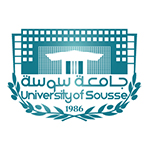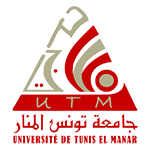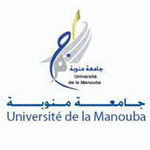Let us help you find the best medical school in Africa!
Tunisia, situated in North Africa, boasts a rich history of educational excellence. The country houses several leading medical universities renowned for offering top-tier education and training to global students. Opting to study medicine in Tunisia promises a fulfilling experience.
These universities, accredited by the Tunisian Ministry of Higher Education and Scientific Research, provide diverse programs like Doctor of Medicine (MD), Bachelor of Medicine and Bachelor of Surgery (MBBS), and Bachelor of Nursing (BN). Here, you’ll learn from seasoned faculty, acquire clinical exposure, and contribute to Tunisia’s healthcare enhancement. Notably, these medical universities hold accreditation from international bodies.
African Medical School facilitates discovering the best-suited medical university for you in Tunisia! Register now to explore the opportunities offered by the esteemed Medical Universities in Tunisia.
Interested in studying in Africa?
Fill in your details & get a call back from our higher education experts.
Medical Universities in Tunisia
Busitema University was founded in 2004 as a public university in Busitema, Uganda. The Ugandan government established it to provide higher education and training in science, technology, engineering, agriculture, and medicine. The university started with two faculties: the Faculty of Engineering and the Faculty of Science and Education. It now has six faculties, including the Faculty of Natural Resources and Environmental Sciences, the Faculty of Agriculture and Animal Sciences, and the Faculty of Health Sciences.
The University of Sfax was founded 1986 as the University of the South. Initially intended to cover all academic institutions in Southern Tunisia, but in 2003 and 2004, the University of Gabes and the University of Gafsa were created, respectively. Today, the University of Sfax is organized into 21 higher education institutions, five research faculties, three colleges, twelve institutes, and a research centre. The university is very open to its socio-economic environment and contributes significantly to diversifying the economic fabric of the governorate of Sfax.
The University of Sousse was founded in 1986 as the University of Monastir. It was renamed the University of the Center in 1991, and in 2004, it was split into three universities, and the University of Sousse was born. The university has grown considerably since its founding and has over 28,000 students. It offers a wide range of academic and professional training courses in the fundamental sciences, law, economics and management, engineering, agronomy, medicine, paramedical sciences, arts and crafts, literature and human sciences.
The University of Tunis El Manar (UTM) is a public university in Tunis, Tunisia. It was founded in 2000 and is organized into 11 faculties and schools. UTM is the largest university in Tunisia and one of the most prestigious in the Arab world. It offers a diverse and high-quality range of educational programs attuned to society’s evolving needs. These programs span multiple disciplines, encompassing fundamental sciences, engineering, humanities, political and legal studies, economics, and medical and paramedical sciences.
Tunis University (UT) is a public university in Tunis, Tunisia. It was founded in 1960 based on earlier educational establishments, including the University of Ez-Zitouna, founded in the 7th century. UT is the oldest and largest university in Tunisia and one of the most prestigious in the Arab world. UT has played a significant role in the development of Tunisia, both academically and professionally.UT is also a major centre for research, and its scholars have made significant contributions to a wide range of fields.
Manouba University was founded in 2000 as a public university in Manouba, Tunisia. It is a relatively new university. The university’s origins can be traced back to the early 1980s when the National School of Computer Sciences (ENSI) was founded. ENSI was one of the first engineering schools in Tunisia, and it quickly gained a reputation for its high-quality education. In 2000, ENSI was merged with several other institutions to form Manouba University. The university’s mission is to provide its students with a high-quality education that prepares them for success in the global economy.






